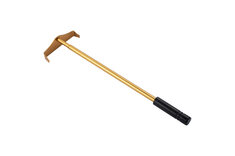Rules of Roulette
A roulette wheel consists of a spinning disk with divisions around its edge that revolves around the base of a bowl. A ball is spun around the outside of the bowl until eventually ball and wheel come to rest with the ball in one of the divisions.
The divisions around the wheel are numbered from 1 to 36 in a seemingly random pattern and alternate red and black. Additionally, there is a green division numbered 0. On American tables only there is a second extra green division marked 00 and it is largely this that makes the American version of Roulette a worse proposition financially than the European game.
Prior to rolling the ball, people place bets on what number will come up by laying down chips on a betting mat, the precise location of the chips indicating the bet being made. Roulette is a game of French origin and on a traditional table, the French terms on the betting area are still used even in English speaking areas. However, on most US tables, English terms and a slightly different style of mat are used.


See also: Roulette Equipment.
Roulette Bets
Much of the interest in Roulette derives from the the number of different bets that can be made and their associated odds. The basic bets are the same for all forms of modern Roulette. Below are a list of all the available bets categorised by the bet's associated odds (both the English and French terms are listed):
- Red / Rouge: a red number
- Black / Noir: a black number
- Even / Pair: an even number
- Odd / Impair: an odd number
- Low bet / Manque: numbers 1 - 18 (Manque is French for "failed" and is used because the ball has failed to pass 18)
- High bet / Passe: numbers 19 - 36 (Passe is so named because it has "passed" the centrepoint)
- First dozen / Premiere douzaine: numbers 1 - 12 (On the French-style mat, the square marked 12P)
- Middle dozen / Moyenne douzaine: numbers 13 - 24 (On the French-style mat, the square marked 12M)
- Last dozen / Dernier douzaine: numbers 25 - 36 (On the French-style mat, the square marked 12D)
- Column bet / Colonne: a column of 12 numbers (The special square at the end of one of the three columns of twelve numbers)
- 5 to 1 - Line bet / Sixain: 6 numbers (Place the stake on the intersection of the edge of two rows of three numbers to bet on those 2 rows)
- 8 to 1 - Corner bet / Carre: 4 numbers (Place the stake at the intersection of a square of four numbers)
- 11 to 1 - Street bet / Carre simple or Transversale: a row of 3 numbers (Half way over the line forming the end of the row of three numbers to be bet upon)
- 17 to 1: Split bet / En Chaval: a pair of numbers (Place the stake across the line dividing the two numbers to be bet upon
- 35 to 1: Straight up / En plein: a single number (Place the stake in the box showing the number concerned. It is allowable to bet on zero)
The bets on six numbers or less are termed "Inside bets". The bets on 12 numbers or more are called "Outside bets".
European Roulette Rules
Assuming that the possible bets are all understood, Roulette is essentially a trivially simple game to play. For each turn, once all bets have been placed using coloured chips to distinguish each player, the croupier halts betting, spins the wheel, and rolls the ball in the opposite direction. When the ball comes to a halt in one of the slots, the croupier announces the result, collects all losing bets and pays out the winner's profits. There are additional optional rules that some casinos and houses play. Both the La Partage and the En Prison roulette rules effectively halve the casino edge on even-money bets. If playing at home, decide at the start which, if any of the following rules you would like to play.
'En Prison' Rule
This is a roulette rule that can be applied to even-money bets only. When a zero turns up, the player has two options:
- Reclaim half the bet and lose the other half.
- Leave the bet (en prison = in prison) for the next spin of the roulette wheel for an all or nothing gamble. If the subsequent spin is again zero, or does not match the imprisoned bet, then the whole bet is lost. Otherwise, if the subsequent spin's outcome matches the bet, the player's money is returned.
'La Partage' Rule
The la partage roulette rule is similar to the en prison rule, only in this case the player has no option when a zero turns up and simply loses half the bet.
Maximum and Minimum stakes
Casinos will normally post a maximum and a minimum stake for a roulette table and this is sometimes done for recreational play, too. Typically, for each spin of the wheel, if a player the total amount of a player's inside bets must exceed the minimum stake. The listed maximum stake usually shows only the maximum allowed for a single number "straight up" bet. The maximum stakes for other types of bet increases proportionately e.g. The maximum bet allowed for a pair of numbers is double the maximum straight-up bet, the maximum allowed for a corner bet is 4 times the straight up maximum and so on. So that really the limitation is on the amount that the casino can lose!
North American Roulette Rules
In North America and the Caribbean, roulette wheels have a double zero, and all bets (except a direct bet on the selected zero) are lost when either zero turns up. The result is significantly poorer odds for the punter and an increase in the Casino's cut. This is probably why in this region, Roulette is less popular than it is in other parts of the world. The rules are the same as for European Roulette above except that the double zero works in the same way as a single zero result. Some American casinos do allow an additional bet called a "basket bet" which is staked by placing chips in the same way as for a line bet on the outside of the the dividing line between the zero row and the row featuring 1, 2 and 3. This bet normally pays out 6 to 1 which gives it odds worse than any other roulette bet.
The old original Roulette Game
In the original French roulette, the numbers 1 - 36, had the zero and the "double zero". The zero was coloured red and also counted as "Pair" and "Manque"; the double zero was black and also counted as "Impair" and "Passe". If the ball fell into one of the two zero divisions, all lost stakes are taken by the bank but if the bet was matched by virtue of being Pair, Impair, Rouge, Noir, Passe or Manque, instead of being won, the stake was imprisoned until the next spin of the wheel. On that subsequent turn, the stake was either lost or if the ball matched the bet again, the stake was merely returned to the gambler without any profit.
These rules are provided by Masters Traditional Games, an Internet shop selling quality traditional games, pub games and unusual games. For general information or for copying and copyright, see our Rules Information page.
Our rules are comprehensive instructions for friendly play. If in doubt, always abide by locally-played or house rules.
Copyright James Masters, 2025. All rights reserved.
These types of games have really taken off at online casinos, where players are immersed into a complete game-show type of an experience.








































